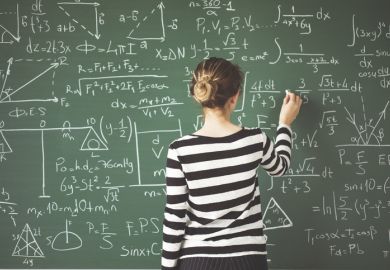Beyond any reasonable doubt, David Deutsch's The Fabric of Reality is a work of brilliance. Although non-technical and written for the educated layperson, this book is intellectually demanding. It develops a unified and coherent world (actually, multiverse) view, a true Weltanschauung. An impressive array of central and age-old issues is creatively and incisively addressed within this framework, and that is Deutsch's great strength here. His basic thesis is that we are likely to be on the verge of having a theory of everything, one able to provide explanations for all that is (or reasonably ought to be) important to us.
For Deutsch, it is understanding, rather than mere knowing, that is the real hallmark of scientific explanations - and, it is through our best theories that we gain genuine understanding of our world. It is not enough to have a reductionist scheme that attempts to account for complex phenomena in terms of simpler components, for that could only explain how things came to be, but not why. Deutsch claims that a complete explanation of the "fabric of reality" can be fashioned from four strands that mutually define and reinforce one another. These are quantum theory, epistemology, the theory of computation and the theory of evolution. His four-strand account of reality should give us "a new level of explanation of a unified fabric of reality". For Deutsch this includes physics, the nature of consciousness, choice and free will, the significance of life, the nature of mathematics, an account of what time is, time travel and the end of the universe(s).
Furthermore, we are assured that "far from denying free will, far from placing human values in a context where they are trivial and insignificant, far from being pessimistic, it is a fundamentally optimistic world view that places human minds at the centre of the physical universe, and explanation and understanding at the centre of human purposes". Let us see how all of this is to come about.
Since quantum theory is the single most important cornerstone of Deutsch's programme, he illustrates the essential features of quantum mechanics with a description of quantum interference effects. On the basis of these empirical facts, we are told that an "inescapable" conclusion is that reality consists of a multiplicity (actually, an ever-increasing continuous infinity) of mutually interfering universes, in only one of which we (really, just one of the copies of "us") exist "now". This is reiterated: "The argument of chapter two, applied to any interference phenomenon destroys the classical idea that there is only one universe."
Here one sees a troubling aspect of several presentations and discussions in this book. It is not always easy for a reader with no technical background to discriminate between what follows as the deductive conclusion of an argument and what is essentially an interpretation of a formal structure (such as the equations of quantum mechanics). One certainly can consistently - and possibly even creatively and fruitfully too - interpret quantum mechanics in terms of Deutsch's multiverse scheme. But one need not, nor is one necessarily benighted if one chooses not to. The reason is that these quantum effects can be accounted for in one universe in terms of what seems to be a pervasive nonlocality at the quantum level. David Bohm's theory does just this. However, it is mentioned only in passing by Deutsch, who gives the reader no adequate picture or reasoned evaluation of such an alternative, empirically warranted and logically consistent explanation of these phenomena.
This is not meant to be a brief for Bohm's theory, nor one against Deutsch's, but only an observation that Deutsch's favoured positions are too often presented as being virtually unavoidable for any rational, unbiased thinker. In any event, an essential ingredient of Deutsch's complete theory is the multiverse.
Next, we come to computing, which is cashed out in terms of virtual reality machines, culminating in the Turing principle: "It is possible to build a virtual-reality generator whose repertoire includes every physically possible environment." Accepting this as an axiom, Deutsch uses it to resolve several key questions, such as the significance of life, the nature of time and how the universe will end. This principle, like the multiverse, is possibly correct, but both are rather large assumptions. They are not demanded by facts or even assented to by a preponderance of people informed on such matters. Now every purported explanation has a price tag attached. It is not unreasonable to ask what one gets for what one pays. In the present case, we might question whether or not there is a net gain in genuine understanding in seriously countenancing a continuous infinity of ever bifurcating universes. Possibly yes, but not obviously so. In this ontology of mutually interfering multiple universes, (intelligent) life, which is the result of physical processes alone, assumes especial importance. It can affect future possibilities and thus becomes "significant in the gross physical development of the universe".
A rather uncomforting environment for "us" is suggested here and by a description of time as having nothing to do with actual becoming, but as effectively amounting to a frozen set of multiple universes in which past, present and future are just "there" once and for all.
Even though Deutsch assures us that his is an optimistic world view for human beings, one is finally left, as in Bertrand Russell's A Free Man's Worship or in Jacques Monod's Chance and Necessity, with a sense of existing alone on the margins of a cold and alien universe. There are, I believe, good reasons for accepting just such a picture, but it is difficult to pull one's chestnuts out of the fire by labelling this an "optimistic" view.
Despite some reservations about the balance of Deutsch's presentation, I most strongly recommend this book to anyone seriously interested in the fundamental questions it addresses.
James T. Cushing is professor of physics at Notre Dame University, Illinois.
The Fabric of Reality
Author - David Deutsch
ISBN - 0 713 99061 9
Publisher - Allen Lane
Price - £25.00
Pages - 390
Register to continue
Why register?
- Registration is free and only takes a moment
- Once registered, you can read 3 articles a month
- Sign up for our newsletter
Subscribe
Or subscribe for unlimited access to:
- Unlimited access to news, views, insights & reviews
- Digital editions
- Digital access to THE’s university and college rankings analysis
Already registered or a current subscriber?



